Throughout the first half of this show, I touched a lot on the purgatory that comes from loss without answers. The numbed repetitiveness of action from people going through the motions of life because all they have in their life is waiting.
As the second half of Beyond Evil opens, it emphasises this repetition of purgatory. Despite Kang Jin-mook’s arrest, the residents of this small town are no closer to knowing what happened to their loved ones. Despite all the frantic action, nothing has really changed and these episodes embody that: almost like the opening of a season 2.
In some ways it feels like an unwelcome redux: a reminder of our characters, all those old familiar beats. The town reset to its old patterns as if nothing has changed. Because nothing really has. If I had to draw on my statistical background for this state it would be regression to the mean. With the outlier of Jin Mook’s killing spree apparently dealt with, the town has simply reset to a state near its original normal.
Jae-yi has gone back to Busan, trying to find old answers to her new questions. Congresswoman Do Hae-won has made progress with her redevelopment plans with Lee Chang-jin. Joo-won’s father is still pursuing his promotion. Dong-shik’s ‘nut gauge’ causes him to arrest the gambling Ahjummas and Joo-won enters the station during the ensuing chaos intent on bringing Dong-shik to justice.
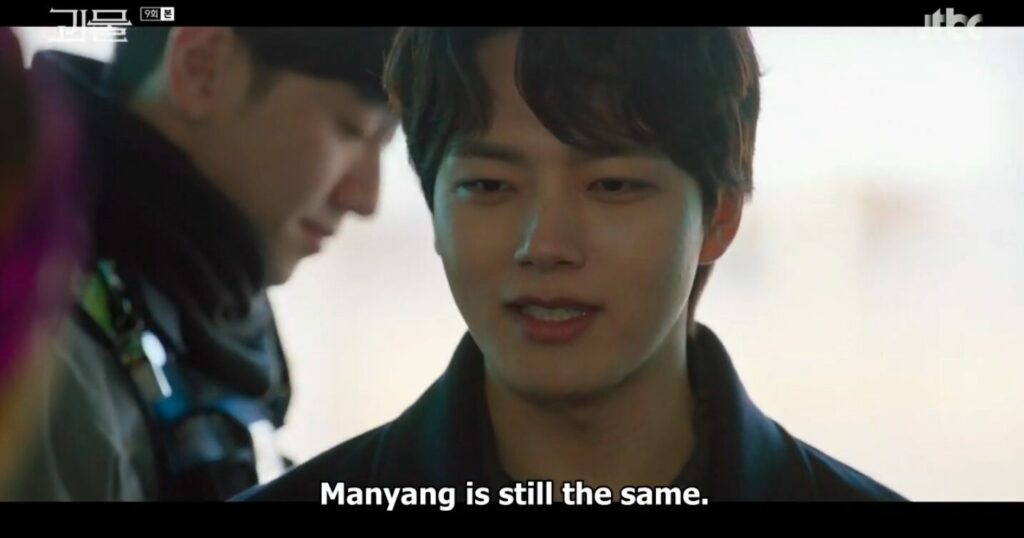
And yet, despite the almost jarring reminder that things have changed very little with Jin-mook’s passing, things have moved slightly. Dong-shik and Joo-won’s relationship is back in a state of mistrust after Joo-won tried to take responsibility for the death of Lee Geum-hwa but Dong-shik refused to hand himself in for evidence tampering.
But this time Joo-won knows that Dong-shik is guilty. Joo-won is, in many ways, a new man. He wants to take responsibility for his actions, demands that from others, and has learned a few tricks from his partner that he’s determined to use to find out what happened. What else is hidden beneath their very feet?
Kang Jin-mook, we discover posthumously, was as sadistic as he was sociopathic. He buried Jae-yi’s mother underneath her own butcher shop, no doubt so that he could watch her search and search and never heal; revelling in his superiority, his secret knowledge. And even though he claims not to have killed Dong-shik’s sister, Lee Yoo-yeon, he has done the same thing with her body. Encased it into the foundations of Dong-shik’s own home so that he would pursue his own investigation right on top of it.
How he must have laughed in private.
As episode 9 opens, three months have passed since Jin-mook’s death in the cells of the station. And with that death and the realisation that all his effort was for nothing, Dong-shik is like a sack of meat that has lost its vital force. He slumps in the darkness in Jin-mook’s house, rewatching old (and very creepy) home movies that talk about the ‘construction work’ the man was doing while he was doing his military service. Every now and then he smashes the floor of the home hoping to find something hidden. He does not.
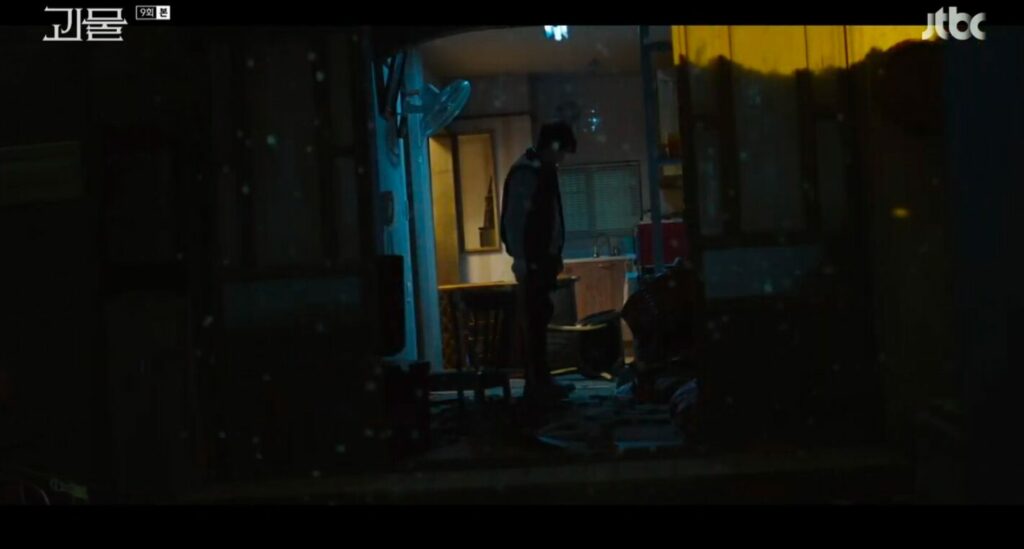
But while Dong-shik has become the brittle shell he was when the show began, Joo-won has found new purpose and new direction. Despite Dong-shik’s protestations that he should ‘return to where he came from’, Joo-won has no intention of doing so. He has cut ties with his awful father and decided to forge his own path in life. One where he has chosen a new father to model himself after and be disappointed by: Dong-shik.
Joo-won spends this two-parter trying to be more Dong-shik than Dong-shik. He threatens Yoo Jae-yi to get her back from Busan and to restart the investigation into how Jin-mook got the fishing wire he used to hang himself. (In my previous piece, I mistakenly said that Jin-mook was murdered. It’s more accurate to say that he was incited to kill himself and given the means to do so).
Joo-won circles around Dong-shik in much the same way Dong-shik did to him in the first half: baiting him, probing him, inciting him. Reflecting his own actions in the first half back to him.
It’s surprisingly fun to watch for such a dark show but his deeper questions are important. Who incited Jim-mook’s suicide and why? What happened to Dong-shik’s sister? But first he needs to get Dong-shik on the path out of his grief-filled purgatory.
Joo-won’s role as outsider and as uncontrollable outlier remains necessary to keep the impetus of this case going. And while Dong-shik keeps telling him to go away, he needs him to keep upsetting the status quo. Joo-won at one point reminds us and Dong-shik of the way a small community will fight amongst themselves but will turn on an outsider as a group if necessary. Sometimes an outsider is needed to crack this nut open.
Near the end of episode 9, Joo-won asks whether Dong-shik actually wants to find his sister at all. And this goes to Dong-shik’s refusal to take responsibility for his evidence tampering. Has Dong-shik lived in purgatory so long that part of him is scared of leaving? Will he keep churning in the same place or finally take a step forward?
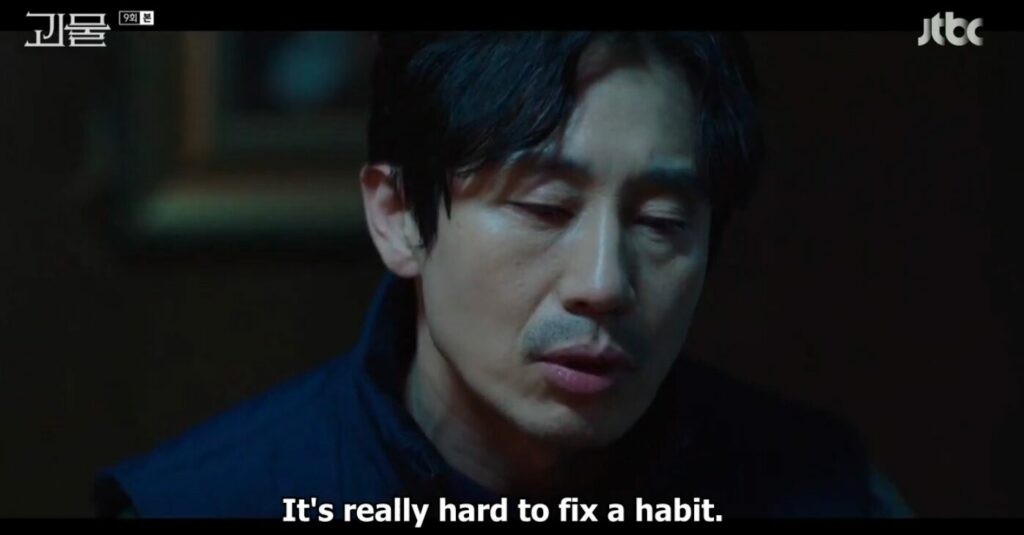
Among many of the interesting almost-unanswerable questions that Beyond Evil asks during its run, one of them is whether crime should be investigated by those with a conflict of interest or not. “Can an insider investigate from inside?” And while the show never answers the question, it provides several examples of both viewpoints. An insider knows the players, they know the community and they often know the secrets hidden beneath. But an insider is also blinded by all those things, often rendered impotent by that knowledge.
Dong-shik is a brilliant man but he lived side by side with Kang Jin-mook for almost two decades without knowing about all the bodies he buried. And boy did he bury them.
The investigation leads to Munju Deer Farm owned previously by our resident ambitious Congresswoman and sold quickly after Yoo-Yeon’s disappearance twenty years before (to the Chairman of JL Constructions of course). Finally digging in the right place, they unearth body after body of all the dead prostitutes that Jin-mook murdered over the years.
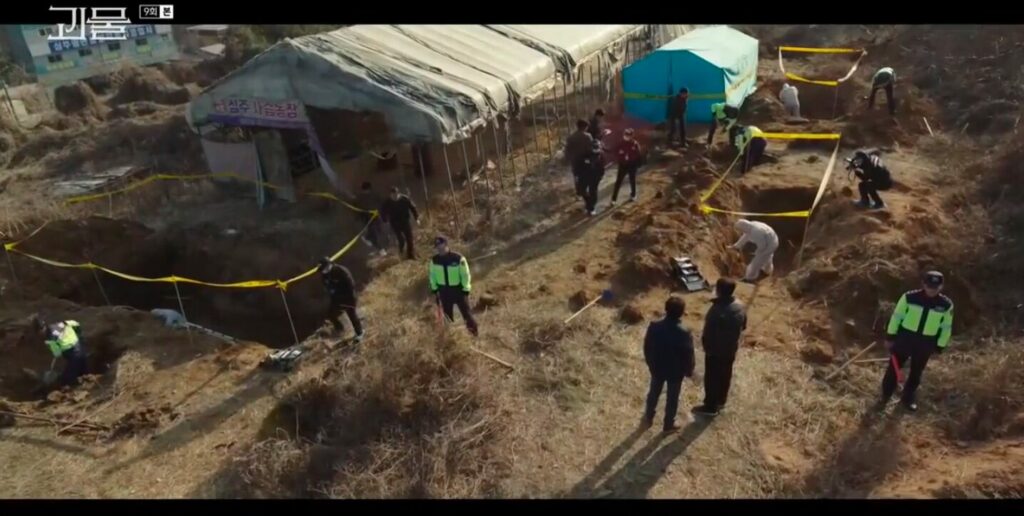
Speaking of people that Dong-shik thinks he knows and even trusts, it does not escape the audience’s notice (but it does escape Dong-shik’s) that his increasingly weird best friend, Park Jung-Jae, has spent the last 20 years drawing Yoo-yeon as a dead fawn. With all the bodies unearthed from Munju Deer Farm, this raises uncomfortable questions about exactly what the fragile Jung-Jae saw or did 20 years ago that broke him.
And, of course, Dong-shik finally works out what Jin-mook was trying to say before his death: that he buried his sister in the foundation of the basement of Dong-shik’s house. But with her body, Jin-mook still doesn’t have his answers. Why and how was she killed? How did Jin-mook get the body? All these questions remains unanswered. Dong-shik can’t slump back into purgatory: repeating his old routine like a pointless prayer to the universe. He has to follow his own advice and break out of his bad habits and investigate.
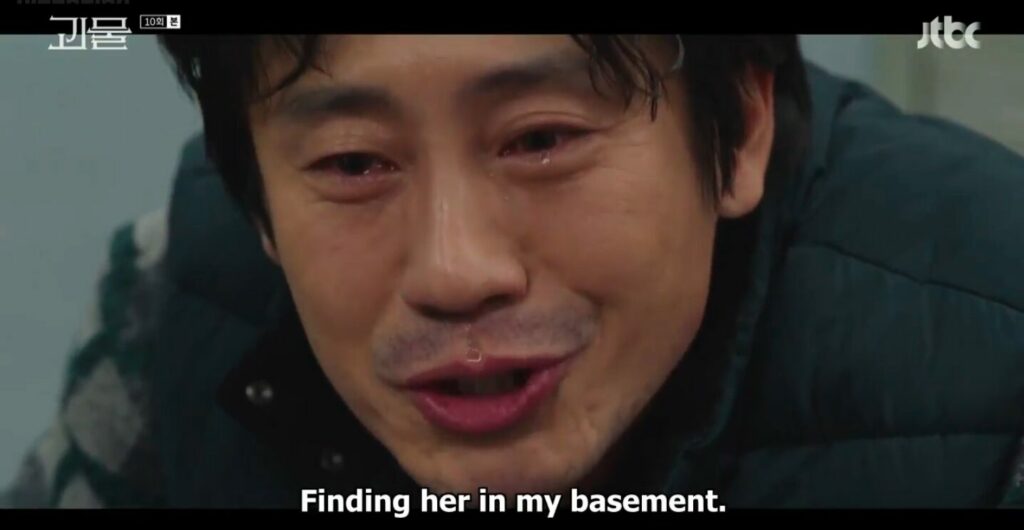
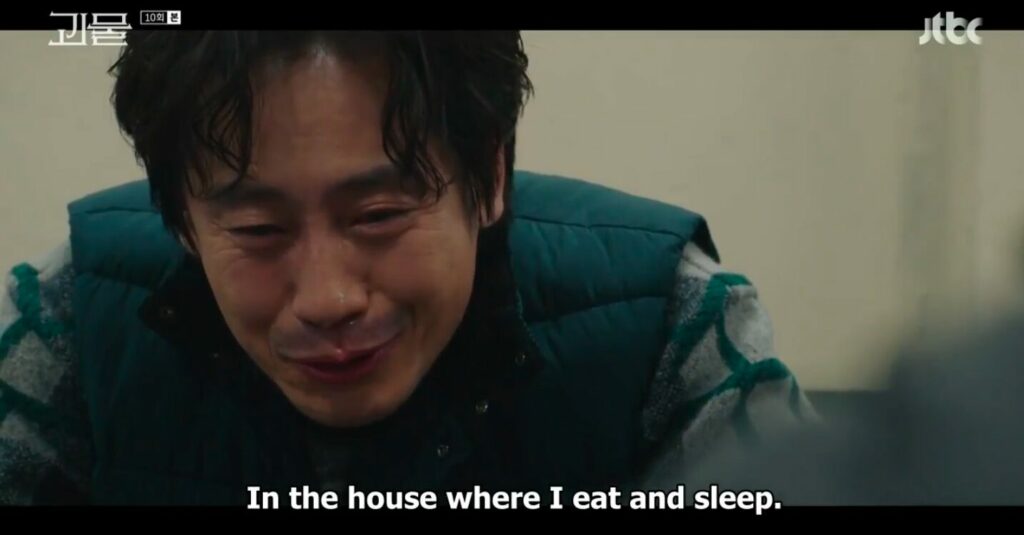
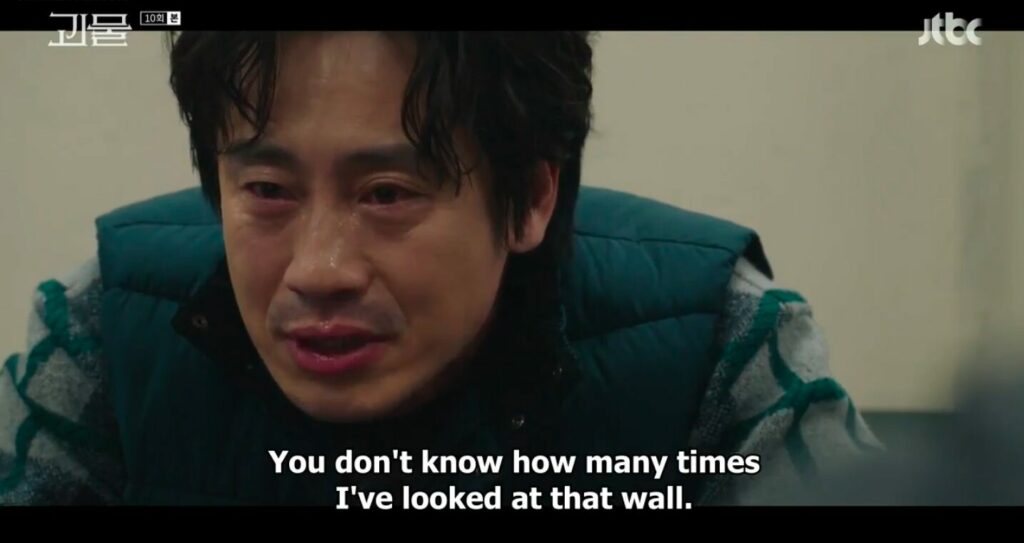
As the bodies keep piling up, the investigation into who incited Kang Jim-mook’s suicide continues thanks to Joo-won’s interference. He seems to have learned some of the wrong things from his partner-father and plants evidence that implicates Chief Nam, a decision that drags more secrets into the light but unfortunately results in the Chief’s murder.
And while the emotional beats and the overall arc of this two-parter are spot on – it’s thematically en pointe, the dialogue is an art form, and both Shin Ha-kyun and Yeo Jin-goo are turning in exceptional performances – there’s an element of fan service to some of the moments that again feels like the first episode of a new season rather than the continuation of an existing one. More importantly, the show throws up more red herrings than it needs to. Instead of feeling like a deep dive into the seedy underbelly of a small community as we discover the dark secrets among our friends and families, it starts instead to feel like a crime drama that’s deliberately misdirecting its audience to fill time.
And yet, Beyond Evil remains gripping television. It just feels firmer when it’s being a psychological thriller rather than a crime drama.
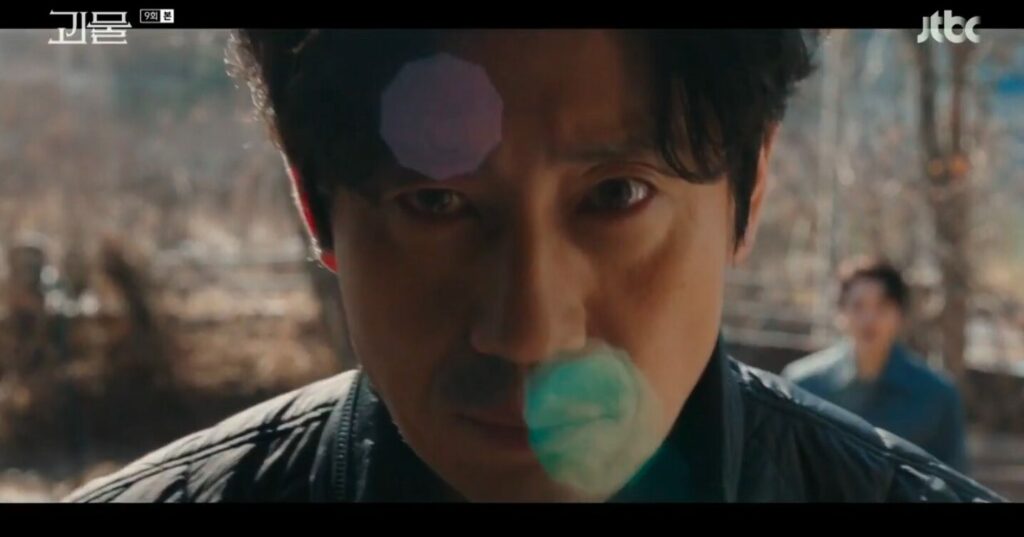



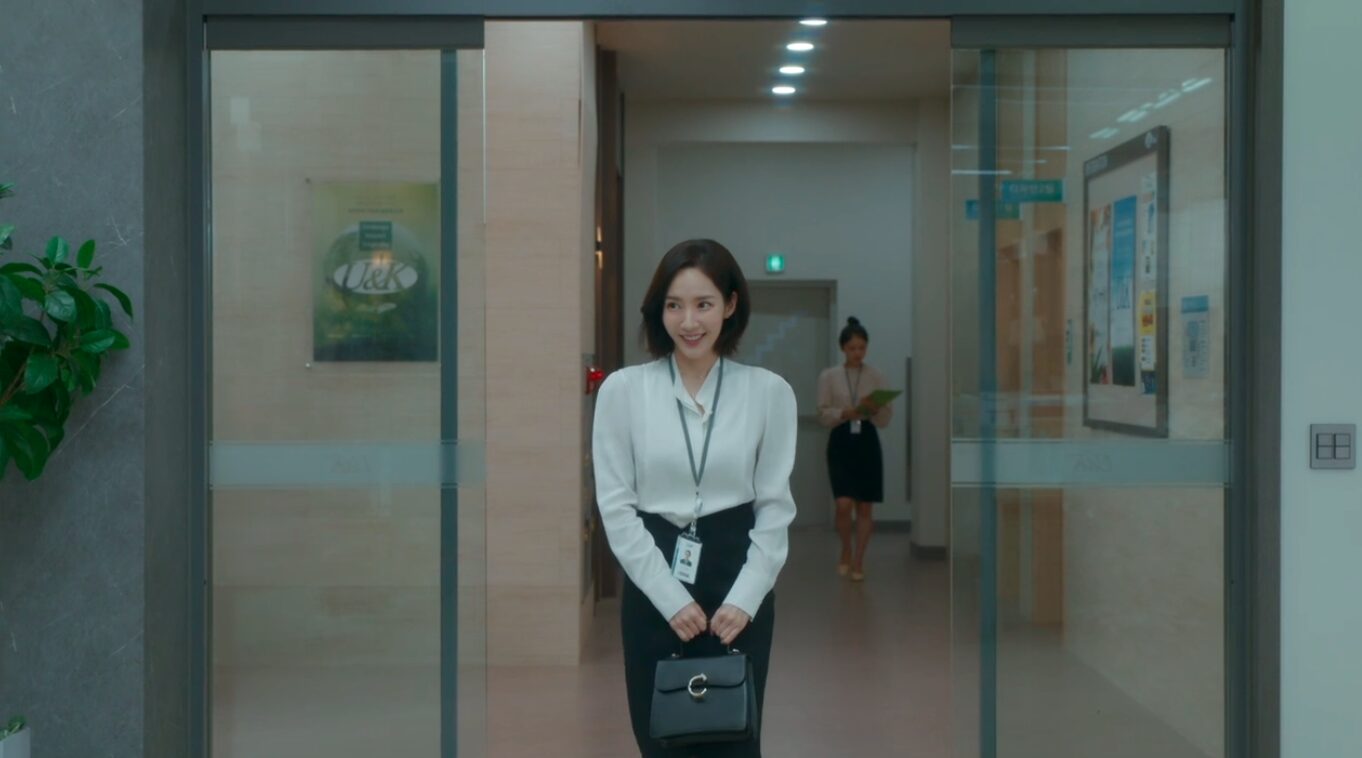
One where he has chosen a new father to model himself after and be disappointed by: Dong-shik.
I love this part so much and it shows how deep is the connection between these two .
My God, I have so many thoughts that I can’t even begin to organise them. Let’s try and get the main ones down, at least.
Throughout episode 9, I assumed “I didn’t kill Yu-yeon” was Kang Jin-muk’s coy way of saying “just like Min-jeong, I only buried her someplace nasty and let nature kill her”. Episode 10 threw that theory out the window. That flashback of her adoring the ring that Dong-shik bought her breaks my heart, and it tells me everything about how close they were and how empty Dong-shik is without her.
God, I went on a rollercoaster with Han Ju-won these two episodes. First I was excited by his post-timeskip glow up – not just the metaphorical hair change (get it? he “let his hair down”, har har har), but personality wise too! I legit did a double-take when he smiled that first time. The boy’s got a confidence that might not be unfounded anymore.
I was also ready to like him more now that he’s stopped being a hypocrite. It’s all well and good for him to preach justice and convince Dong-shik to trun himself in, but while conveniently ignoring the fact that he did something pretty disgusting and illegal as well? No, that doesn’t fly. But it looks like his personal philosophy isn’t so fractured now.
But he hasn’t changed where it counts, has he? He’s still a smarmy little snake that lets himself into people’s houses and plants trackers on them with no regard for the potential consequences. Sigh, we’ve still got so far to go.
I love Jae-yi and Jeong-jae. I’m brave enough to admit it. They’re definitely not going to betray that love… right?
Kkeut.
pat pat don’t worry , hugs